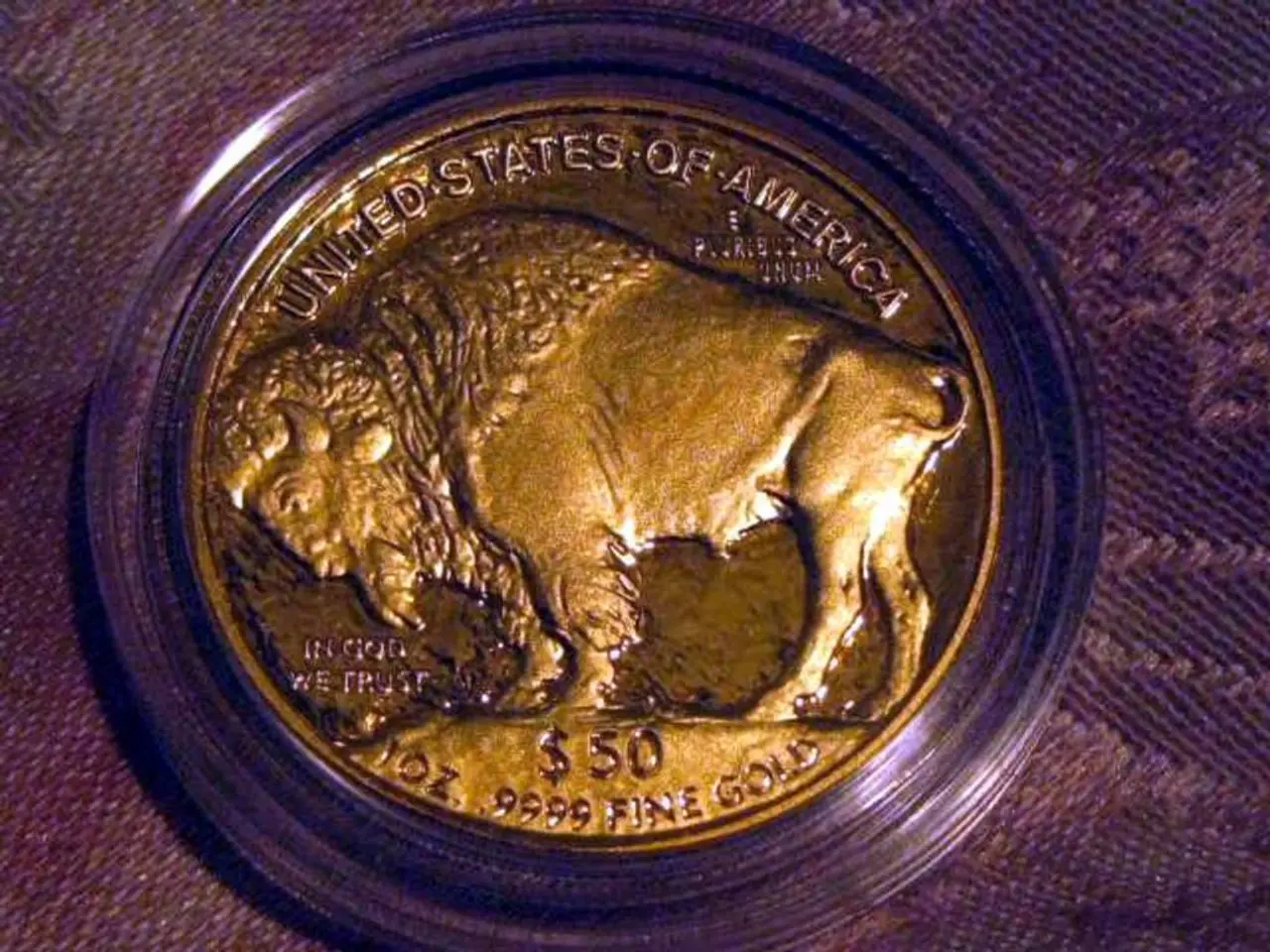Euro currency faces competition from Bitcoin and gold, according to European Central Bank head's observations
The world of international currencies is undergoing a significant transformation, with traditional players like the Euro and the US Dollar facing challenges from a new contender - Bitcoin.
Central banks are massively increasing their gold reserves, viewing gold as a neutral store of value outside geopolitical dependencies. This move comes as gold has already overtaken the euro as the second most important reserve asset worldwide, according to current ECB data.
Meanwhile, Bitcoin is gaining strategic significance and is being considered as a long-term hedging instrument by countries like Bhutan, El Salvador, and individual US states. Even the US is holding a Bitcoin reserve and planning to expand it. Institutional actors are increasingly investing in Bitcoin due to its non-inflationary, uncensorable, and independent nature.
The European Central Bank (ECB) plays a key role in strengthening the euro's status as a globally recognized reserve currency. By pursuing monetary policies aimed at maintaining euro stability and preventing excessive appreciation against other currencies, such as the US dollar, the ECB is working to assert the euro's position. However, new challenges have emerged, including initiatives promoting the global use of cryptocurrencies.
EU concern about loss of sovereignty and financial instability due to Trump's crypto policy is not unfounded. The euro must assert itself in this new environment against both classical alternatives like gold and digital challengers like Bitcoin. Europe must convert its economic strength into geopolitical strength due to geopolitical tensions and growing doubts about the leading role of the US dollar.
ECB President Christine Lagarde has called for a stronger role for the euro in the global financial system. In a guest article in the Financial Times, she explicitly referred to the role of digital assets and the structural change in the world economy. She also highlighted the importance of legal integrity, economic resilience, and geopolitical strength in maintaining trust in a currency. However, many market participants are increasingly questioning these factors in both the euro and the dollar.
The digital Euro and the "native" Euro are dependent on political reforms, while Bitcoin is progressing independently. The EU is focusing on the digital Euro, recognizing its potential as a response to the rise of cryptocurrencies. There is also a MEP calling for a Bitcoin reserve in the EU.
The US Dollar is losing trust, but not necessarily to the benefit of the Euro. The dollar's dominance has been built on its role as a safe haven during times of global economic uncertainty. However, trust in a currency depends on more than just economic resilience. It also requires geopolitical strength, a factor where the US is currently facing challenges.
In conclusion, the international role of the euro is under threat from both traditional alternatives like gold and digital challengers like Bitcoin. The EU must navigate this complex landscape carefully, strengthening the euro's position while also embracing the opportunities presented by digital assets. The future of global currencies is uncertain, but one thing is clear: change is inevitable.




